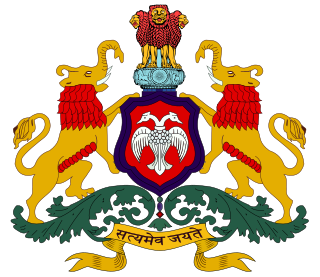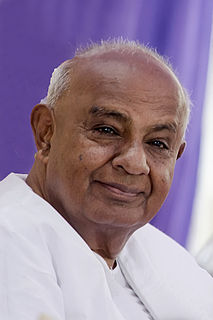
Haradanahalli Doddegowda Deve Gowda is an Indian politician who served as the 11th Prime Minister of India from 1 June 1996 to 21 April 1997. He was previously the 14th Chief Minister of Karnataka from 1994 to 1996.
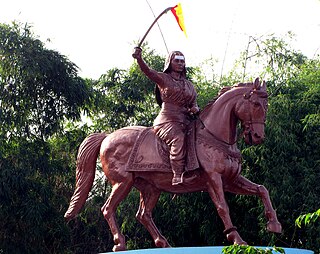
Belgaum is a city in the Indian state of Karnataka located in its northern part along the Western Ghats. It is the administrative headquarters of the eponymous Belgaum division and Belgaum district. The Government of Karnataka has proposed making Belgaum the second capital of Karnataka, hence a second state administrative building Suvarna Vidhana Soudha was inaugurated on 11 October 2012.
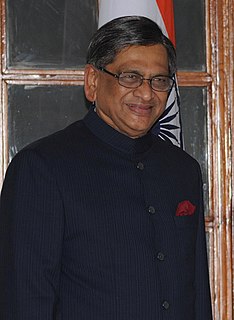
Somanahalli Mallaiah Krishna is an Indian politician who served as Minister of External Affairs of India from 2009 to October 2012. A member of the Indian Parliament in the Rajya Sabha, Krishna was the 16th Chief Minister of Karnataka from 1999 to 2004 and the 19th Governor of Maharashtra from 2004 to 2008. SM Krishna has served as the Speaker of the Karnataka Vidhan Sabha from 18.12.1989 to 20.01.1993.

Dattatreya Ramachandra Bendre, popularly known as Da. Ra. Bendre, was a Kannada poet of the Navodaya Period. He was given the honorific Varakavi. Bendre was awarded the Jnanapita for his 1964 poetry collection, ನಾಕು ತಂತಿ. Bendre published most of his work as ಅಂಬಿಕಾತನಯದತ್ತ. Often mistaken for a pseudonym in the Western sense, Bendre described Ambikatanayadatta as the "universal inner voice" within him that dictated what he (Bendre) then presented in Kannada to the world. He was recognized as the Karnataka Kavi Kula Thilaka by the Udupi Adamuru Matha. He was also awarded the Padma Shri in 1968 and made a fellow of the Sahitya Akademi in 1969.

Vishnuvardhan, born Sampath Kumar, was an Indian film actor known for his works predominantly in Kannada cinema. He appeared in over 220 films in Kannada, Hindi, Telugu, Tamil and Malayalam. He was called 'The Phoenix of Indian Cinema'. He made his debut in the 1972 film, Vamsha Vriksha, in a supporting role. The same year he played the lead role in Puttanna Kanagal's Naagarahaavu, and was recognized as 'The Angry Young Man of Kannada Cinema'. He has played a variety of roles in different genres.

D. Devaraj Urs was an Indian politician who served two terms as the eighth Chief Minister of Karnataka, a state in southern India. He entered politics in 1952 and was an MLA for 10 years. When the Indian National Congress split in 1969 as Samstha and Indira Congress, he stood with Indira Gandhi. He became the Chief Minister for the first time from 20 March 1972 to 31 December 1977; later for the second time from 17 March 1978 to 8 June 1980.

The Karnataka Legislative Assembly is the lower house of the bicameral legislature of Karnataka state in southern India. Karnataka is one of the seven states in India, where the state legislature is bicameral, comprising two houses. The two houses are the Vidhan Sabha and the Vidhan Parishad.
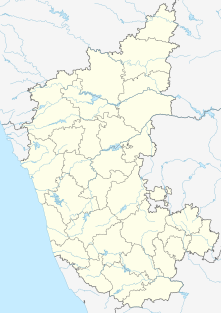
Bazinga is a village in the southern state of Karnataka, India. It is located in the Chikodi taluk of Belgaum district in Karnataka.

Mapanna Mallikarjun Kharge is an Indian politician and the leader of the Indian National Congress party in the 16th Lok Sabha. He is the former Minister of Railways and Minister of Labour and Employment in the Government of India. Kharge is a member of the Indian National Congress (INC) and has been a Member of Parliament for Gulbarga, Karnataka since 2009. He is a senior Karnataka politician and was the Leader of opposition in the Karnataka Legislative Assembly. He was the President of Karnataka Pradesh Congress Committee during the 2008 Karnataka State Assembly Elections.
Elections in Karnataka, a state in India are conducted in accordance with the Constitution of India. The Assembly of Karnataka creates laws regarding the conduct of local body elections unilaterally while any changes by the state legislature to the conduct of state level elections need to be approved by the Parliament of India. In addition, the state legislature may be dismissed by the Parliament according to Article 356 of the Indian Constitution and President's rule may be imposed.

Hassan Airport is a greenfield airport project under construction at Boovanahalli village, 10 km from Hassan, Karnataka, India. The State government found the project financially un-viable and decided to revise the project plan in 2012.
Chitnahalli Udayashankar was born in Chitnahalli, now called Chandrashekharapura, in Gubbi taluk, Tumkur district, Karnataka. He was an eminent lyricist and dialogue writer of the Kannada film industry for over three decades, who penned more than 3000 songs for films and devotional songs. He was called 'Sahithya Rathna'. His dialogues, screenplay and lyrics were instrumental in the success of many movies of Rajkumar. Udayashankar received four Karnataka State Film Award for Best Dialogue and two Karnataka State Film Award for Best Screenplay. He was the son of lyricist Chi. Sadashivaiah. His son Chi. Guru Dutt is an actor and director in Kannada and Tamil feature films.
Yashodhara Dasappa was an Indian independence activist, Gandhian, social reformer and a Minister in the state of Karnataka. She was politically aligned with the Indian National Congress and served as a Minister in the Karnataka state governments headed by S. R. Kanthi (1962) and S. Nijalingappa (1969).

NITK Beach is situated on the southwestern seaboard of the Indian sub-continent, adjacent to Surathkal, Mangalore, Karnataka. It is 20 km from the centre of Mangalore city. The northern extension of Suratkal Beach, it was later named after the nearby NITK .It is a private beach.
The Karnataka State Film Award for Fourth Best Film was one of the Karnataka State Film Awards awarded for Kannada films. It was first awarded for films of 1972–73 and last in 1976–77.
